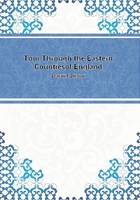Here are propositions of vast and indefinite extent, conveyed in language which has a certain obscure dignity and sagacity, attractive, we doubt not, to many minds. But the moment that we examine these propositions closely, the moment that we bring them to the test by running over but a very few of the particulars which are included in them, we find them to be false and extravagant. The doctrine which "must surely command universal assent" is this, that every association of human beings which exercises any power whatever, that is to say, every association of human beings, is bound, as such association, to profess a religion. Imagine the effect which would follow if this principle were really in force during four-and-twenty hours. Take one instance out of a million. A stage-coach company has power over its horses. This power is the property of God. It is used according to the will of God when it is used with mercy. But the principle of mercy can never be truly or permanently entertained in the human breast without continual reference to God. The powers, therefore, that dwell in individuals, acting as a stage-coach company, can only be secured for right uses by applying to them a religion. Every stage coach company ought, therefore, in its collective capacity, to profess some one faith, to have its articles, and its public worship, and its tests. That this conclusion, and an infinite number of other conclusions equally strange, follow of necessity from Mr. Gladstone's principle, is as certain as it is that two and two make four. And, if the legitimate conclusions be so absurd, there must be something unsound in the principle.
We will quote another passage of the same sort:
"Why, then, we now come to ask, should the governing body in a state profess a religion? First, because it is composed of individual men; and they, being appointed to act in a definite moral capacity, must sanctify their acts done in that capacity by the offices of religion; inasmuch as the acts cannot otherwise be acceptable to God, or anything but sinful and punishable in themselves. And whenever we turn our face away from God in our conduct, we are living atheistically. . . . In fulfilment, then, of his obligations as an individual, the statesman must be a worshipping man. But his acts are public--the powers and instruments with which he works are public--acting under and by the authority of the law, he moves at his word ten thousand subject arms; and because such energies are thus essentially public, and wholly out of the range of mere individual agency, they must be sanctified not only by the private personal prayers and piety of those who fill public situations, but also by public acts of the men composing the public body. They must offer prayer and praise in their public and collective character--in that character wherein they constitute the organ of the nation, and wield its collective force. Wherever there is a reasoning agency there is a moral duty and responsibility involved in it. The governors are reasoning agents for the nation, in their conjoint acts as such. And therefore there must be attached to this agency, as that without which none of our responsibilities can be met, a religion. And this religion must be that of the conscience of the governor, or none."
Here again we find propositions of vast sweep, and of sound so orthodox and solemn that many good people, we doubt not, have been greatly edified by it. But let us examine the words closely; and it will immediately become plain that, if these principles be once admitted, there is an end of all society. No combination can be formed for any purpose of mutual help, for trade, for public works, for the relief of the sick or the poor, for the promotion of art or science, unless the members of the combination agree in their theological opinions. Take any such combination at random, the London and Birmingham Railway Company for example, and observe to what consequences Mr. Gladstone's arguments inevitably lead. Why should the Directors of the Railway Company, in their collective capacity, profess a religion? First, because the direction is composed of individual men appointed to act in a definite moral capacity, bound to look carefully to the property, the limbs, and the lives of their fellow-creatures, bound to act diligently for their constituents, bound to govern their servants with humanity and justice, bound to fulfil with fidelity many important contracts. They must, therefore, sanctify their acts by the offices of religion, or these acts will be sinful and punishable in themselves. In fulfilment, then, of his obligations as an individual, the Director of the London and Birmingham Railway Company must be a worshipping man, But his acts are public. He acts for a body. He moves at his word ten thousand subject arms. And because these energies are out of the range of his mere individual agency, they must be sanctified by public acts of devotion. The Railway Directors must offer prayer and praise in their public and collective character, in that character wherewith they constitute the organ of the Company, and wield its collective power. Wherever there is reasoning agency, there is moral responsibility. The Directors are reasoning agents for the Company, and therefore there must be attached to this agency, as that without which none of our responsibilities can be met, a religion. And this religion must be that of the conscience of the Director himself, or none. There must be public worship and a test. No Jew, no Socinian, no Presbyterian, no Catholic, no Quaker, must, be permitted to be the organ of the Company, and to wield its collected force." Would Mr. Gladstone really defend this proposition? We are sure that he would not; but we are sure that to this proposition, and to innumerable similar propositions, his reasoning inevitably leads.















